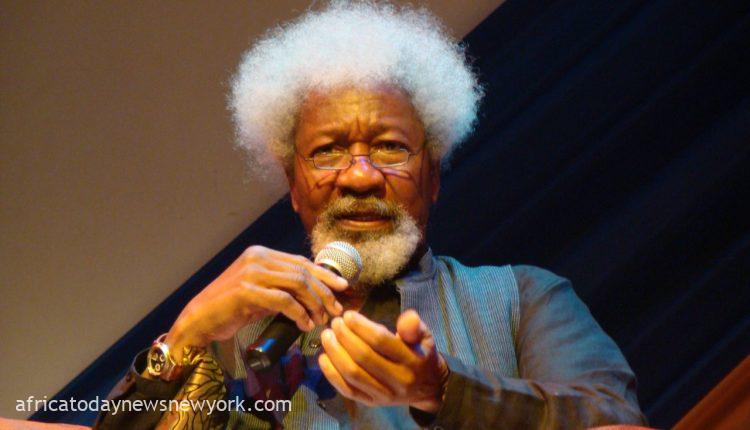Ahead of the expected 29th of May inauguration of the new administration in Nigeria, Nobel Laureate, Professor Wole Soyinka has asserted that Nigerians will not stop demanding restructuring.
There have been several calls for restructuring in Africa’s most populous nation whereby the government will be brought closer to the people at the grassroots.
Speaking during an interview on Roadmap 2023, a Channels Television’s programme that highlights election issues and tracks personalities, Soyinka said the government of President-Elect, Bola Tinubu, must place a renewed focus on the persistent calls for restructuring the Nigerian federation otherwise its programmes and policies will face serious challenges.
‘Whomever it is must understand that the people of this country will not cease demanding a restructuring of this nation,” he stated.
Read Also: Restructuring: Buhari Assents To Power Devolution Bills
‘New voices are being heard and they are more powerful than before. They are not just whining voices, they are voices based on actualities. We have failed in so many directions and they are saying, ‘let us try in this direction’ and you cannot ignore it.
‘Otherwise, even your economic policies will fail, your infrastructure and transformation will fail. We will just go back threading the same old spur.’
According to Professor Soyinka, a mould has been broken during the just concluded elections.
Africa Today News, New York reports that there has been a serious clamour for restructuring in Nigeria in recent times.
Last month, President Muhammadu Buhari had finally signed into law 16 bills seeking to amend various parts of the 1999 Constitution as the country looks to restructure its critical institutions.
This was made known on Friday evening by a Joint Senate and House of Representatives Special Ad Hoc Committee on the Review of the 1999 Constitution.
According to the information from the Office of the Deputy Speaker of the House of Representatives, Ahmed Wase, who is the co-chairman of the committee, the bills assented to by the President included those devolving powers from the Federal Government to the states as some items were moved from the Exclusive Legislative List to the Concurrent List in the Constitution.

